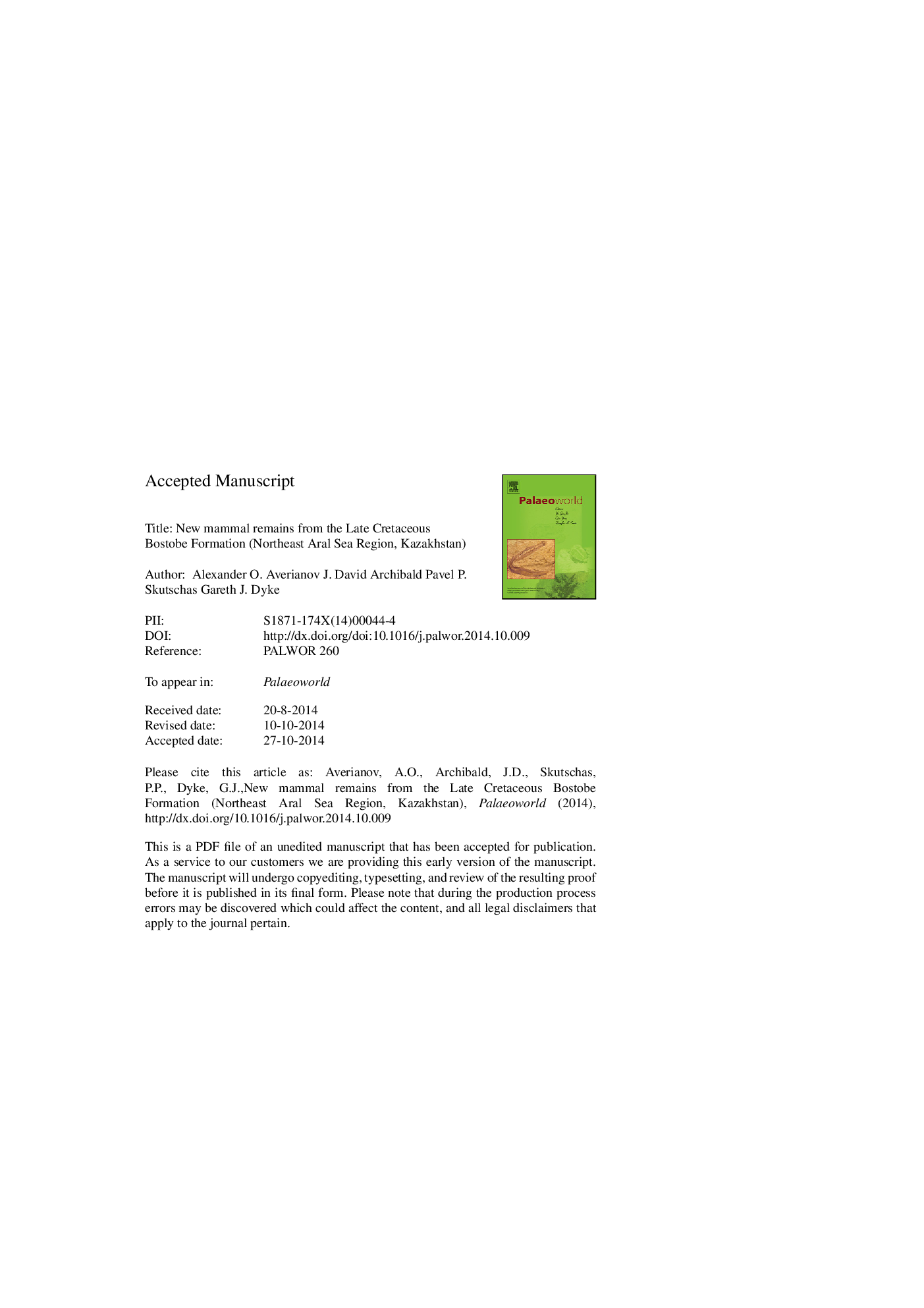| Article ID | Journal | Published Year | Pages | File Type |
|---|---|---|---|---|
| 4749775 | Palaeoworld | 2014 | 23 Pages |
Abstract
Four recently collected mammal specimens from the Upper Cretaceous (Santonian-?Campanian) Bostobe Formation in the northeastern Aral Sea Region, Kazakhstan are attributed to Asioryctitheria indet. (an edentulous dentary fragment) and the zhelestid Parazhelestes sp. cf. P. mynbulakensis (a maxillary fragment with a double-rooted canine, an M1, and a dentary fragment including m3). These new records double the known mammal fauna from this formation, which previously included the zhelestid Zhalmouzia bazhanovi and Zhelestidae indet. The taxonomic and ecological structure of the mammal assemblage from the Bostobe Formation can, on present evidence, be considered close to the other eutherian dominated Late Cretaceous mammal assemblages of Central Asia. This region is important in particular in the search for Late Cretaceous ancestors of crown-group eutherian mammal clades (Placentalia).
Keywords
Related Topics
Physical Sciences and Engineering
Earth and Planetary Sciences
Palaeontology
Authors
Alexander O. Averianov, J. David Archibald, Pavel P. Skutschas, Gareth J. Dyke,
